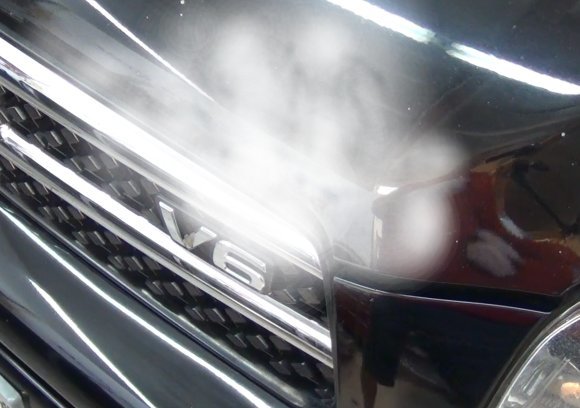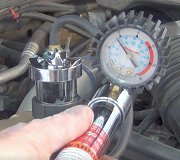If your van is experiencing an overheating issue after it has been turned off and then restarted, it suggests that there may be a problem with the cooling system. Here are a few possible causes for this issue:
Coolant Leaks: It's possible that your van has a coolant leak that becomes more significant when the engine is running and under pressure. This can lead to a loss of coolant, resulting in overheating. Check for any visible coolant leaks under the vehicle or around the engine compartment. Additionally, you may consider performing a pressure test on the cooling system to identify any hidden leaks.
Faulty Thermostat: A malfunctioning thermostat can cause the engine to overheat. The thermostat regulates the flow of coolant through the radiator based on the engine temperature. If it fails to open properly, coolant circulation may be restricted, resulting in overheating. Consider inspecting and replacing the thermostat if necessary.
Water Pump Issues: The water pump circulates coolant throughout the engine and radiator. A faulty water pump, such as a worn impeller or a leaking seal, can hinder proper coolant circulation and cause overheating. Inspect the water pump for any signs of leaks or mechanical failure.
Clogged Radiator: A clogged or restricted radiator can prevent adequate heat dissipation, leading to overheating. Inspect the radiator for any obstructions, such as debris or sediment, and ensure that it is clean. Flushing the cooling system may help remove any blockages.
Cooling Fan Problems: The cooling fan helps dissipate heat from the radiator. If the fan is not functioning correctly, or if there are issues with the fan relay or temperature sensor, the engine may overheat when stationary or at low speeds. Check the fan operation and the associated components.
Head Gasket Failure: A blown head gasket can lead to coolant and combustion gas mixing, resulting in overheating. Look for symptoms such as white smoke from the exhaust, coolant mixing with engine oil, or a sweet smell of coolant in the exhaust. A compression test or a cooling system pressure test can help diagnose a head gasket issue.
SPONSORED LINKS
Tuesday, May 16th, 2023 AT 12:32 PM



